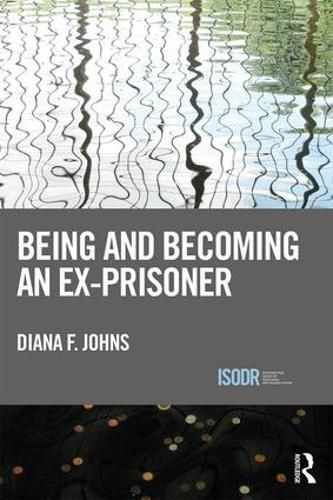Readings Newsletter
Become a Readings Member to make your shopping experience even easier.
Sign in or sign up for free!
You’re not far away from qualifying for FREE standard shipping within Australia
You’ve qualified for FREE standard shipping within Australia
The cart is loading…






Despite broad scholarship documenting the compounding effects and self-reproducing character of incarceration, ways of conceptualising imprisonment and the post-prison experience have scarcely changed in over a century. Contemporary correctional thinking has congealed around notions of risk and management. This book aims to cast new light on men’s experience of release from prison.
Drawing on research conducted in Australia, it speaks to the challenges facing people leaving prison and seeking acceptance amongst the non-imprisoned around the world. Johns reveals the complexity of the post-prison experience, which is frequently masked by constructions of risk that individualise responsibility for reoffending and reimprisonment. This book highlights the important role of community in ex-prisoner integration, in providing opportunities for participation and acceptance. Johns shows that the process of becoming an ‘ex’-prisoner is not simply one of individual choice or larger structural forces, but occurs in the spaces in between.
Being and Becoming an Ex-Prisoner reveals the complex interplay between internal and external meanings and practices that causes men to feel neither locked up, nor wholly free. It will appeal to scholars and students interested in desistance, criminology, criminological or penological theory, sociology and qualitative research methods.
$9.00 standard shipping within Australia
FREE standard shipping within Australia for orders over $100.00
Express & International shipping calculated at checkout
Despite broad scholarship documenting the compounding effects and self-reproducing character of incarceration, ways of conceptualising imprisonment and the post-prison experience have scarcely changed in over a century. Contemporary correctional thinking has congealed around notions of risk and management. This book aims to cast new light on men’s experience of release from prison.
Drawing on research conducted in Australia, it speaks to the challenges facing people leaving prison and seeking acceptance amongst the non-imprisoned around the world. Johns reveals the complexity of the post-prison experience, which is frequently masked by constructions of risk that individualise responsibility for reoffending and reimprisonment. This book highlights the important role of community in ex-prisoner integration, in providing opportunities for participation and acceptance. Johns shows that the process of becoming an ‘ex’-prisoner is not simply one of individual choice or larger structural forces, but occurs in the spaces in between.
Being and Becoming an Ex-Prisoner reveals the complex interplay between internal and external meanings and practices that causes men to feel neither locked up, nor wholly free. It will appeal to scholars and students interested in desistance, criminology, criminological or penological theory, sociology and qualitative research methods.